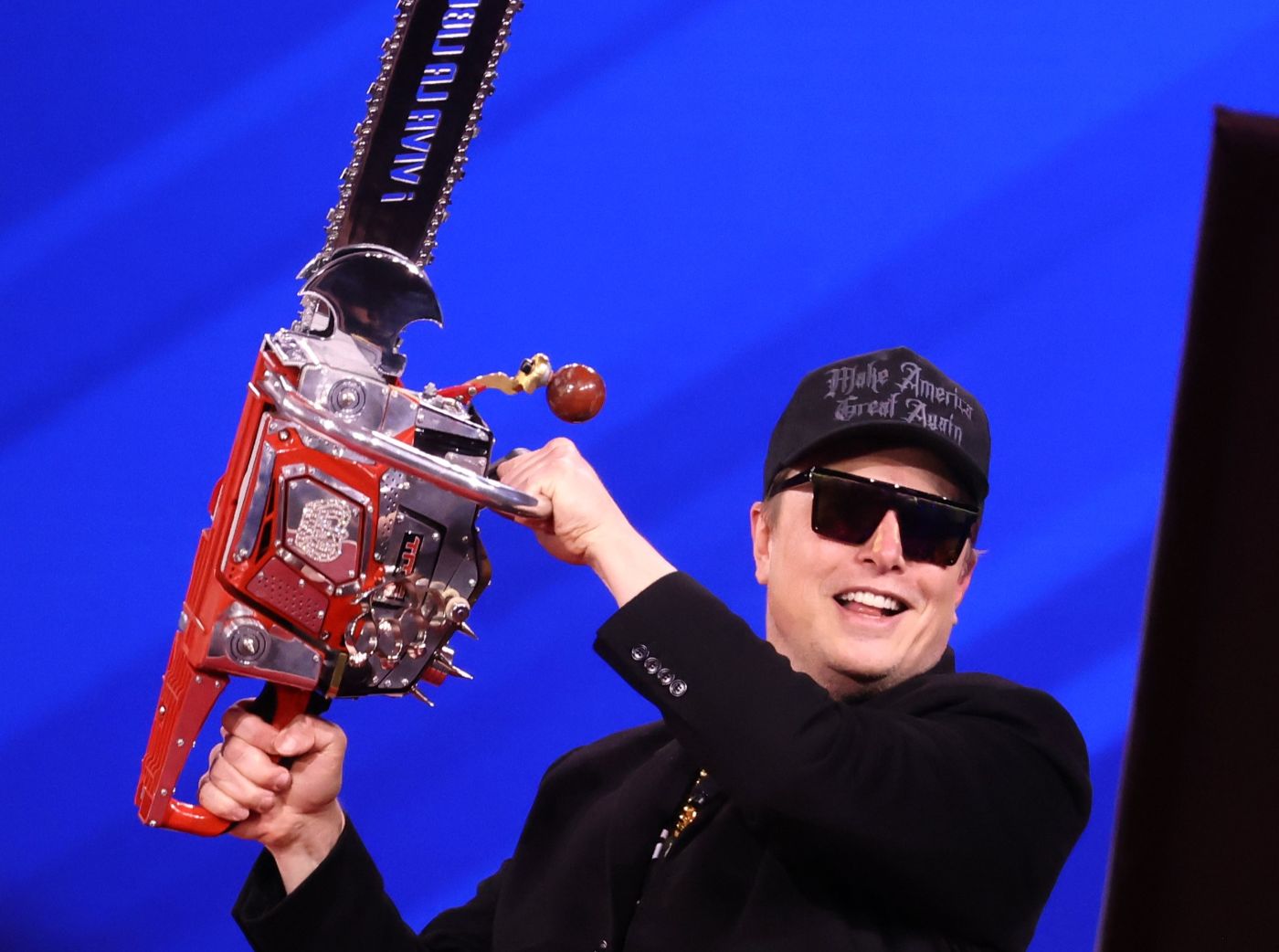Billionaire entrepreneur Elon Musk is reportedly preparing legal action against the producers of Saturday Night Live (SNL) and actor Mike Myers following a recent sketch that he believes crossed the boundary from satire into defamation.
The sketch in question aired as part of a cold open, imagining a fictional Oval Office meeting between former President Donald Trump and Ukrainian President Volodymyr Zelensky. The segment took a surreal turn when Mike Myers appeared on set impersonating Musk, donning a signature tech-inspired outfit and wielding a prop chainsaw—a clear reference to Musk’s real-life appearance at CPAC earlier this year.
According to individuals close to the matter, Musk perceived the parody as not merely comedic exaggeration but as a personal and professional attack. He reportedly felt the portrayal undermined his integrity, business leadership, and emotional stability by depicting him as an unpredictable authoritarian figure. A line in the sketch—“They say I’m firing people without cause. But I do have cause—it’s ‘cause I feel like it!”—was cited as particularly offensive to the Tesla and SpaceX CEO.

Following the episode’s broadcast, Musk took to his social media platform, X (formerly Twitter), to express his displeasure. He posted a cryptic message: “Humor fails when it lies,” which many interpreted as a direct response to the SNL skit.
Sources indicate that Musk’s legal team, comprised of prominent entertainment and defamation attorneys, is examining potential legal avenues against NBCUniversal, the show’s producers, and Myers personally. Although parody enjoys broad protection under the First Amendment in the United States, Musk’s lawyers are reportedly crafting a case that asserts the sketch blurred lines between satire and factual misrepresentation—thereby harming Musk’s reputation and business relationships.
A specific point of contention is the sketch’s use of the chainsaw imagery in a fictional government setting. Musk allegedly views this as a deliberate attempt to recast a public, albeit provocative, moment as a sign of mental instability.
Public reaction to Musk’s criticism has been divided. While some supporters argue the portrayal went too far, many social media users have accused Musk of hypocrisy, pointing to his past calls for greater comedic freedom. Online commentary noted the irony in Musk’s pushback against satire just days after promoting the idea of “legalizing comedy.”
Critics widely praised Myers’ impersonation for its accuracy and comedic precision. Some even suggested it resembled a dramatized documentary in tone, highlighting Musk’s well-known mannerisms, speech patterns, and public persona with remarkable fidelity.
Nonetheless, the situation raises complex legal and cultural questions about the limits of parody, especially when it closely mirrors reality. Musk’s camp reportedly argues that Myers’ impersonation ventured beyond permissible satire by casting Musk in a delusional light—referring to himself as “president” in the sketch—which they believe could impact public perception among investors, partners, and regulators.
However, not everyone within Musk’s inner circle supports a legal confrontation. Some advisors are said to be concerned about potential reputational fallout, including becoming a recurring target in comedy circles and inadvertently amplifying the controversy—a classic example of the Streisand effect.
As memes and mock campaign posters bearing slogans like “MUSK 2028: Because Reality Is Overrated” spread across the internet, it’s clear that the parody has taken on a life of its own. For Musk, however, this issue appears to extend beyond image control. Sources say he views it as a question of accountability in an era where media representations can rapidly shape public narratives.
Whether Musk proceeds with legal action remains uncertain. As of now, Saturday Night Live has not commented publicly, and Mike Myers has remained silent. Regardless of the outcome, this incident may spark broader discussions about the boundaries of satire and the rights of public figures in the digital age.
Source: Daily Mail
